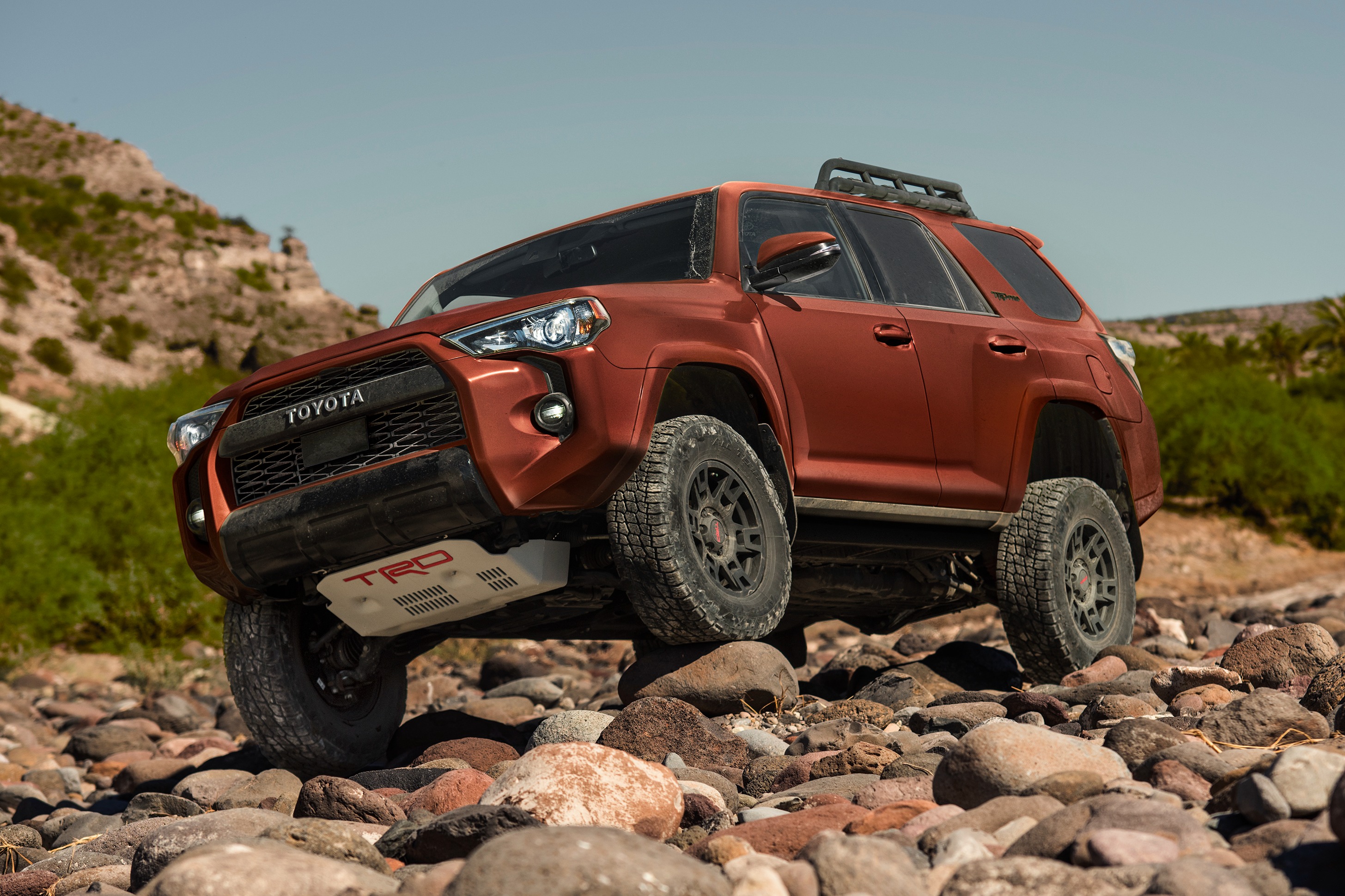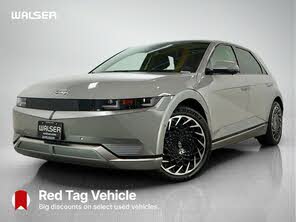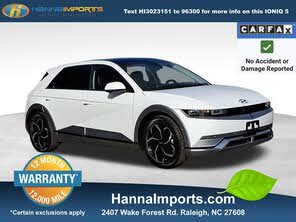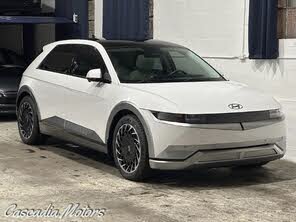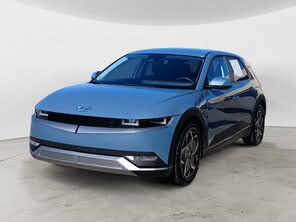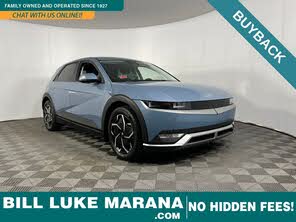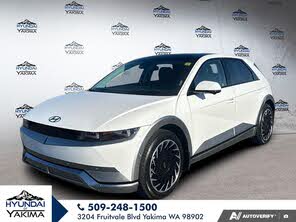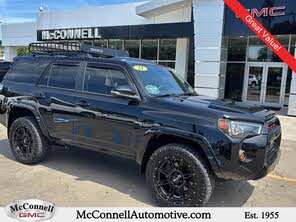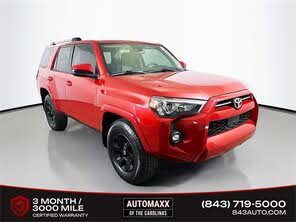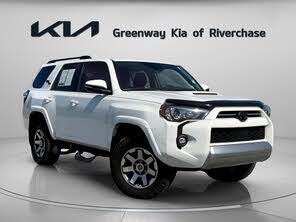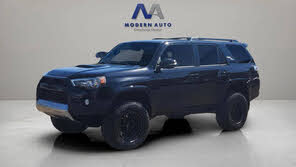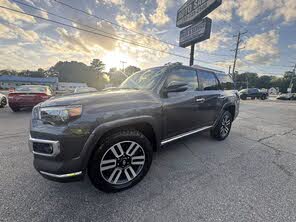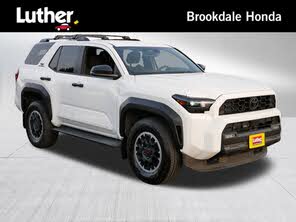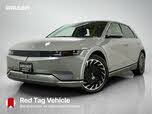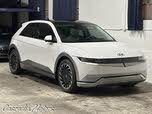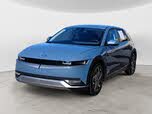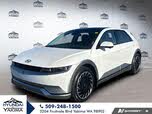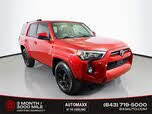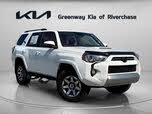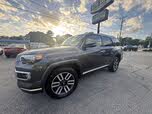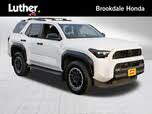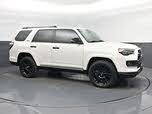Hyundai Ioniq 5 vs Toyota 4Runner
Overview | |
Years produced1984-Present | Years produced2022-Present |
MSRP$41,270 | MSRP$42,600 |
Listings9392 | Listings8572 |
Ratings & Reviews | |
User Reviews | User Reviews |
Expert reviews7.7 out of 10 | Expert reviews8.7 out of 10 |
Pros
Cons
| Pros
Cons
|
Reviews SummaryAfter a very long 15 years, we finally got a new Toyota 4Runner with more capabilities, power, comfort, and technology. It's also more efficient thanks to a new hybrid option and more composed on pavement, but it remains a solid all-terrain vehicle to extend your adventures further. Verdict: Toyota doesn't throw out the fomula with its newly redesigned 4Runner. Instead, the 2025 model keeps many of the features shoppers have loved for over a decade, while also adding a more contemporary selection of four-cylinder powertrains. | |
Reviews SummaryIt would appear to be the calendar, not the competition, that has the Ioniq 5 due for a mid-cycle refresh. We liked it when it burst onto the scene as an angular oddball in a sea of soft-lined sameness, and it has only improved over the last few years. Verdict: Hyundai makes minor but welcome changes and avoids tweaking the many things that were working well, successfully making a good thing better. | |
No video found | |
Popular Features & Specs | |
Engine | Engine168 hp Electric |
Drive Train | Drive TrainRWD |
Seating Capacity7 | Seating Capacity5 |
EV Battery Capacity | EV Battery Capacity63 kWh |
MPG City | MPG City131 |
MPG Highway | MPG Highway100 |
Battery Charge Time (120V) | Battery Charge Time (120V)54 hours |
Battery Charge Time (240V) | Battery Charge Time (240V)5.7 hours |
Engine | |
Engine Name2.4L 278 hp I4 | Engine Name168 hp Electric |
Torque317 lb-ft @ 1700 rpm | Torque |
Horsepower278 hp @ 6000 rpm | Horsepower |
Battery Charge Time (120V) | Battery Charge Time (120V)54 hours |
Battery Charge Time (240V) | Battery Charge Time (240V)5.7 hours |
Drivetrain4X2 | DrivetrainRWD |
Fuel Economy | |
EV Battery Capacity | EV Battery Capacity63 kWh |
MPG City | MPG City131 |
MPG Highway | MPG Highway100 |
Interior | |
Seating Capacity7 | Seating Capacity5 |
Key Features | |
Navigation System | Navigation SystemStandard |
Dimensions & Capacity | |
Cargo Space48.4 cu ft | Cargo Space26.3 cu ft |
Curb Weight4455 lbs | Curb Weight4144 lbs |
Height72.6 in | Height63.0 in |
Length194.9 in | Length183.3 in |
Width78.0 in | Width74.4 in |
Wheelbase112.2 in | Wheelbase118.1 in |
Maximum Payload895 lbs | Maximum Payload1081 lbs |
Number of doors4 | Number of doors4 |
Maximum Towing Capacity6000 lbs | Maximum Towing Capacity |
Standard Towing Capacity6000 lbs | Standard Towing Capacity |
Overview | ||
Years produced | 1984-Present | 2022-Present |
MSRP | $41,270 | $42,600 |
Listings | ||
Ratings & Reviews | ||
User reviews | ||
Expert reviews | 7.7 out of 10Read full review | 8.7 out of 10Read full review |
Pros & cons | Pros
Cons
| Pros
Cons
|
Summary | After a very long 15 years, we finally got a new Toyota 4Runner with more capabilities, power, comfort, and technology. It's also more efficient thanks to a new hybrid option and more composed on pavement, but it remains a solid all-terrain vehicle to extend your adventures further. Verdict: Toyota doesn't throw out the fomula with its newly redesigned 4Runner. Instead, the 2025 model keeps many of the features shoppers have loved for over a decade, while also adding a more contemporary selection of four-cylinder powertrains. | It would appear to be the calendar, not the competition, that has the Ioniq 5 due for a mid-cycle refresh. We liked it when it burst onto the scene as an angular oddball in a sea of soft-lined sameness, and it has only improved over the last few years. Verdict: Hyundai makes minor but welcome changes and avoids tweaking the many things that were working well, successfully making a good thing better. |
Video | No video found | |
Popular Features & Specs | ||
Engine | 168 hp Electric | |
Drive Train | RWD | |
Seating Capacity | 7 | 5 |
EV Battery Capacity | 63 kWh | |
MPG City | 131 | |
MPG Highway | 100 | |
Battery Charge Time (120V) | 54 hours | |
Battery Charge Time (240V) | 5.7 hours | |
Engine | ||
Engine Name | 2.4L 278 hp I4 | 168 hp Electric |
Torque | 317 lb-ft @ 1700 rpm | |
Horsepower | 278 hp @ 6000 rpm | |
Battery Charge Time (120V) | 54 hours | |
Battery Charge Time (240V) | 5.7 hours | |
Drivetrain | 4X2 | RWD |
Fuel Economy | ||
EV Battery Capacity | 63 kWh | |
MPG City | 131 | |
MPG Highway | 100 | |
Interior | ||
Seating Capacity | 7 | 5 |
Key Features | ||
Navigation System | Standard | |
Dimensions & Capacity | ||
Cargo Space | 48.4 cu ft | 26.3 cu ft |
Curb Weight | 4455 lbs | 4144 lbs |
Height | 72.6 in | 63.0 in |
Length | 194.9 in | 183.3 in |
Width | 78.0 in | 74.4 in |
Wheelbase | 112.2 in | 118.1 in |
Maximum Payload | 895 lbs | 1081 lbs |
Number of doors | 4 | 4 |
Maximum Towing Capacity | 6000 lbs | |
Standard Towing Capacity | 6000 lbs | |

By: CarGurus + AI
At CarGurus, our team of experienced automotive writers remain at the heart of our content operation, conducting hands-on car tests and writing insightful guides that are backed by years of industry experience. To complement this, we are harnessing AI to make our content offering more diverse and more helpful to shoppers than ever. To achieve this, our AI systems are based exclusively on CarGurus content, ratings and data, so that what we produce is both unique to CarGurus, and uniquely helpful to car shoppers.
